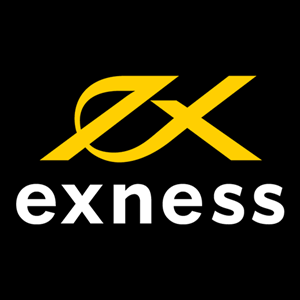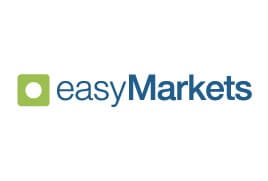Contracts for Difference (CFD) trading has gained significant popularity in South Africa, offering investors a unique way to speculate on financial markets without owning the underlying assets. This comprehensive guide aims to provide a thorough understanding of CFD trading in South Africa, covering key concepts, benefits, risks, and regulatory considerations.
Best CFD Brokers in South Africa

Quotex

Deriv

Exness

IQ Option

Hycm

Easy Markets
Key Concepts in CFD Trading:
Leverage:
One of the significant advantages of CFD trading is the ability to use leverage. Leverage allows traders to control a more substantial position size with a smaller amount of capital. However, it also magnifies both profits and losses, making risk management crucial.
Long and Short Positions:
Traders can take long positions (buy) if they anticipate an asset’s price to rise or short positions (sell) if they expect a decline. This flexibility allows for profit potential in both rising and falling markets.
Margin:
CFD trading involves margin, where traders are required to deposit a percentage of the total trade value. This margin acts as collateral and allows traders to access larger positions. It’s important to manage margin requirements to avoid liquidation.
Benefits of CFD Trading in South Africa:
Diverse Asset Classes:
CFDs cover a wide range of asset classes, including stocks, indices, commodities, and currencies, providing South African traders with diverse investment opportunities.
Leverage:
The availability of leverage allows traders to amplify their market exposure, potentially increasing profits. However, caution is advised, as leverage also heightens the risk of significant losses.
24/5 Market Access:
CFD markets operate 24 hours a day, five days a week, providing South African traders the flexibility to participate in global markets at any time, aligning with their local time zone.
Hedging:
CFDs can be used for hedging existing investment portfolios, helping to offset potential losses in traditional investments.
Risks Associated with CFD Trading:
Leverage Risk:
While leverage can enhance profits, it also increases the risk of substantial losses. Traders must use leverage cautiously and implement risk management strategies.
Market Risk:
CFD trading is subject to market volatility, and sudden price movements can result in rapid and significant losses.
Counterparty Risk:
CFD traders transact with brokers, and there is a risk of the broker defaulting. It is crucial to choose reputable and regulated brokers to mitigate this risk.
Regulatory Considerations in South Africa:
Financial Sector Conduct Authority (FSCA):
The FSCA regulates financial markets and services in South Africa, including CFD trading. Traders should ensure that their chosen broker is licensed and adheres to regulatory standards.
Client Fund Protection:
Reputable brokers implement measures to protect client funds, such as segregating client accounts from their operational accounts.
(FAQs) About CFD Trading in South Africa:
What is CFD trading?
trading, or Contracts for Difference trading, is a form of derivative trading where investors speculate on the price movements of financial instruments without owning the underlying assets. It allows traders to profit from both rising and falling markets.
How does CFD work in South Africa?
In trading, investors enter into contracts with brokers to exchange the difference in the price of an asset from the entry point to the exit point. No physical ownership of the asset is involved, making it a speculative form of trading.
What financial instruments can I trade with CFDs in South Africa?
CFDs are available for various asset classes, including stocks, indices, commodities, and currencies. This diversity provides South African traders with a range of investment opportunities.
What is leverage in CFD trading?
Leverage allows traders to control a larger position size with a smaller amount of capital. While it can amplify profits, it also increases the risk of significant losses. Traders should use leverage cautiously and implement risk management strategies.
What are long and short positions in CFD trading?
Traders can take long positions (buy) if they anticipate an asset’s price to rise or short positions (sell) if they expect a decline. This flexibility allows for potential profits in both bullish and bearish market conditions.
What are the benefits of CFD trading in South Africa?
CFD trading offers diverse asset classes, leverage for increased market exposure, 24/5 market access, and the ability to hedge existing investment portfolios against potential losses.
What risks are associated with CFD trading?
Risks include leverage risk, market risk due to volatility, and counterparty risk, where the broker could default. Traders must use risk management strategies and choose reputable, regulated brokers.
How do I manage risk in CFD trading?
Risk management involves setting stop-loss orders, diversifying your portfolio, and avoiding excessive use of leverage. It’s essential to have a clear risk-reward strategy before entering a trade.
Is CFD trading regulated in South Africa?
Yes, the Financial Sector Conduct Authority (FSCA) regulates trading in South Africa. It is crucial for traders to choose brokers licensed and regulated by the FSCA to ensure a secure trading environment.
Can I trade CFDs with a small amount of capital?
Yes, trading allows traders to control larger positions with a relatively small amount of capital due to leverage. However, it’s important to understand the associated risks and trade responsibly.
Conclusion:
trading in South Africa offers a flexible and accessible avenue for investors to engage in various global markets. While the potential for profits is enticing, it is crucial for traders to fully understand the risks involved, use leverage responsibly, and choose regulated brokers to ensure a secure trading environment. Continuous education, disciplined risk management, and staying informed about market conditions are essential for success in the dynamic world of trading.
